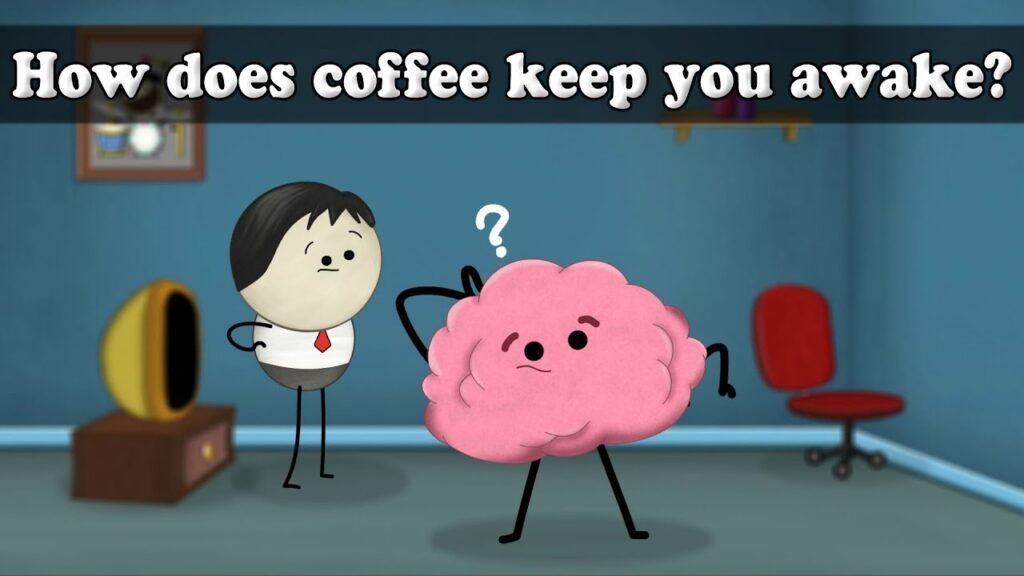Have you ever wondered if coffee really helps you stay awake? You’re not alone. Many people reach for that steaming cup of coffee to kickstart their day or keep themselves awake during long hours of work, but how effective is it really? In this article, you’ll explore how coffee impacts your alertness and whether it’s the ultimate solution for staying awake.

What is Coffee?
Before diving into how coffee affects your wakefulness, it’s essential to understand what coffee actually is. Coffee is a brewed drink prepared from roasted coffee beans, the seeds of berries from certain Coffea species. Once ripe, coffee berries are picked, processed, and dried. Dried coffee seeds are roasted to varying degrees, depending on the desired flavor.
Chemical Composition
Coffee contains numerous compounds, but caffeine is the main active component responsible for its stimulating effects. In addition to caffeine, coffee also contains antioxidants and other beneficial nutrients such as potassium, magnesium, and vitamins B2 and B3.
Types of Coffee
There are numerous types of coffee, each with its own preparation method and distinct flavor profile. Some of the most common types include:
- Espresso: A concentrated coffee brewed by forcing a small amount of nearly boiling water through finely-ground coffee beans.
- Americano: Similar to an espresso but with added hot water to dilute it.
- Latte: A combination of espresso and steamed milk, often topped with foam.
- Cappuccino: Similar to a latte but with more foam and sometimes cocoa powder or cinnamon on top.
The Role of Caffeine
Caffeine is a natural stimulant found in coffee, tea, and various other plants. It works primarily by blocking the action of adenosine, a neurotransmitter that promotes relaxation and sleepiness.
How Caffeine Works
When you consume caffeine, it gets absorbed into your bloodstream and travels to your brain. Once there, it blocks adenosine receptors, preventing you from feeling tired. This can lead to increased alertness, improved concentration, and enhanced cognitive function.
Here’s a simplified table of how caffeine affects your body:
| Time After Consumption | Effect on the Body |
|---|---|
| 10-15 minutes | Initial stimulation |
| 30-60 minutes | Peak concentration in blood |
| 3-5 hours | Half of caffeine is metabolized |
| 10-12 hours | Caffeine is mostly cleared from the body |
Pros of Caffeine Consumption
- Alertness: Keeps you awake and focused.
- Cognitive Function: Enhances memory and mental performance.
- Mood Improvement: Can improve your mood and reduce the feeling of fatigue.
- Physical Performance: Boosts physical performance by increasing adrenaline levels.
Cons of Caffeine Consumption
- Insomnia: Can disrupt your sleep if consumed late in the day.
- Addiction: May lead to dependency, making it difficult to feel alert without it.
- Jitters: Excessive consumption can cause anxiety and nervousness.
- Digestive Issues: Can sometimes cause stomach upset and acid reflux.
Coffee and Wakefulness
Short-Term Benefits
In the short term, coffee can significantly improve your alertness and focus. It helps you stay awake, especially during early mornings and mid-afternoons when you’re most likely to experience a dip in energy levels.
Long-Term Effects
Long-term reliance on coffee to stay awake can lead to issues such as caffeine dependency and disrupted sleep cycles. It’s important to consume coffee in moderation to avoid these potential problems.
Timing Matters
The timing of your coffee consumption can impact its effectiveness in keeping you awake. Drinking coffee too late in the day can interfere with your sleep during the night, making you more tired the next day.
How Much Coffee is Too Much?
Recommended Intake
According to health experts, the recommended daily intake of caffeine should not exceed 400 milligrams. This is roughly equivalent to four 8-ounce cups of coffee.
Side Effects of Overconsumption
Consuming more than the recommended amount of coffee can lead to various side effects, including:
- Anxiety and Restlessness: Too much caffeine can make you feel anxious and jittery.
- Insomnia: Overconsumption can disrupt your sleep patterns.
- Heart Palpitations: Excessive caffeine can cause a rapid or irregular heartbeat.
- Digestive Problems: High amounts of caffeine can lead to stomach upset and acid reflux.

Alternatives to Coffee for Staying Awake
While coffee is a popular go-to for staying awake, other alternatives can help you remain alert without relying on caffeine.
Green Tea
Green tea contains caffeine but in lower amounts compared to coffee. It also includes L-theanine, an amino acid that promotes relaxation without making you sleepy.
Herbal Teas
Certain herbal teas, such as ginseng and peppermint, have natural stimulating properties that can help you stay awake.
Hydration
Staying well-hydrated is essential for maintaining your energy levels. Drinking plenty of water throughout the day can help keep you alert.
Healthy Snacks
Eating healthy snacks rich in protein and complex carbohydrates can provide you with steady energy. Nuts, fruits, and whole grains are excellent options.
Physical Activity
Engaging in regular physical activity can boost your energy levels and help you stay awake. Even short walks can make a significant difference.
Power Naps
Taking short naps (around 20 minutes) can restore your energy and improve your alertness without negatively affecting your night’s sleep.
Quality of Sleep and Its Importance
It’s crucial to focus on the quality of sleep you get each night, as no amount of coffee can replace the need for adequate rest.
Sleep Hygiene
Good sleep hygiene involves creating an environment and routine that promote consistent, uninterrupted sleep. This includes maintaining a regular sleep schedule, creating a restful environment, and avoiding screens before bedtime.
Relaxation Techniques
Practicing relaxation techniques such as deep breathing, meditation, and progressive muscle relaxation can help improve your sleep quality.
Avoiding Stimulants
Limiting your intake of caffeine and other stimulants in the afternoon and evening can help you fall asleep more easily and have a more restful night.
Coffee and Your Health
While coffee can provide short-term benefits in staying awake, it’s also important to consider its overall impact on your health.
Nutritional Benefits
Coffee contains antioxidants and beneficial nutrients like potassium and magnesium. These nutrients can support overall health when consumed in moderation.
Potential Risks
Excessive coffee consumption can lead to potential health risks, including:
- High Blood Pressure: Too much caffeine can raise your blood pressure.
- Heart Disease: High caffeine intake might be linked with an increased risk of heart disease.
- Bone Loss: Excessive consumption may reduce calcium absorption, leading to bone density issues.
Moderation is Key
Moderation is essential when it comes to coffee consumption. Enjoying coffee as part of a balanced diet can offer health benefits, but it’s crucial not to overdo it.
Debunking Myths About Coffee
Several myths about coffee may influence your perception of its ability to help you stay awake.
Myth 1: Coffee Sobers You Up
One common myth is that coffee can sober you up if you’re drunk. However, while coffee may make you feel more alert, it does not reduce blood alcohol levels or improve motor skills impaired by alcohol.
Myth 2: Dark Roast Has More Caffeine
Another myth is that dark roast coffee has more caffeine than lighter roasts. In reality, the caffeine content is relatively similar, regardless of the roast level.
Myth 3: Coffee Dehydrates You
Some believe that coffee dehydrates you. While caffeine has a mild diuretic effect, the water content in coffee more than compensates for this, making it less likely to dehydrate you.
Myth 4: Coffee Stunts Your Growth
The idea that coffee stunts your growth is a myth with no scientific backing. This misconception likely originated from older, unfounded concerns.

Conclusion
In summary, coffee can help you stay awake and alert in the short term, thanks to its caffeine content. However, it’s essential to consume it in moderation to avoid potential negative side effects like insomnia, anxiety, and digestive issues. Alternatives to coffee, such as green tea, hydration, and healthy snacks, can also help you stay awake while promoting overall health. Remember, no amount of coffee can substitute the benefits of a good night’s sleep, so always prioritize quality rest for long-term well-being. By understanding how coffee affects you and maintaining a balanced approach, you can make the most of your daily cup and enjoy its benefits without over-relying on it.

